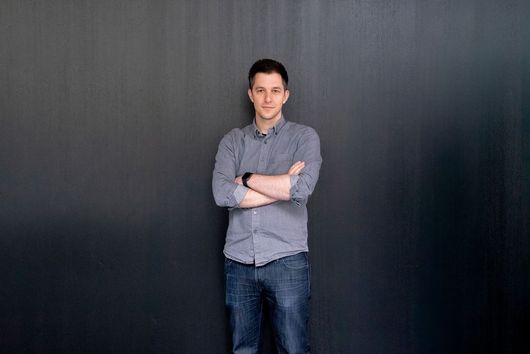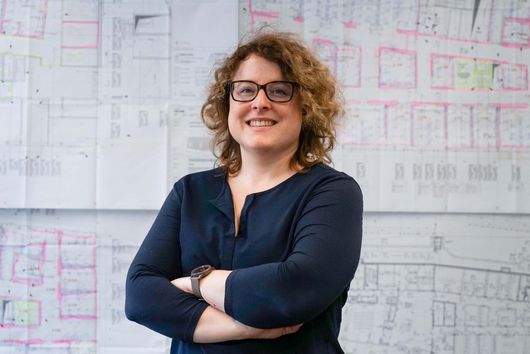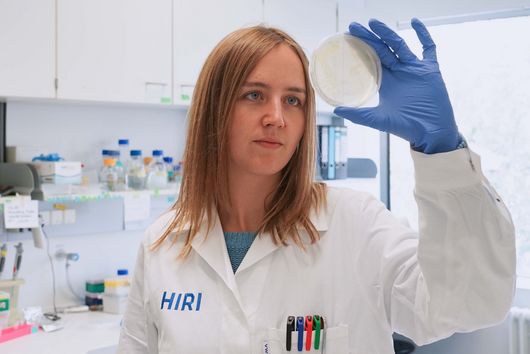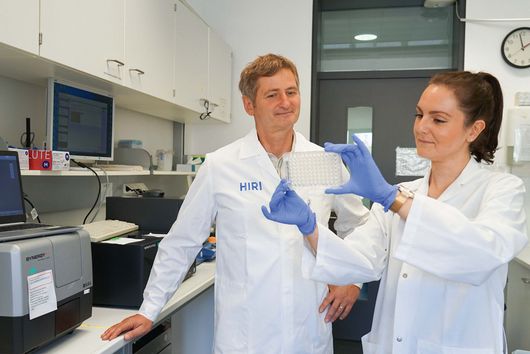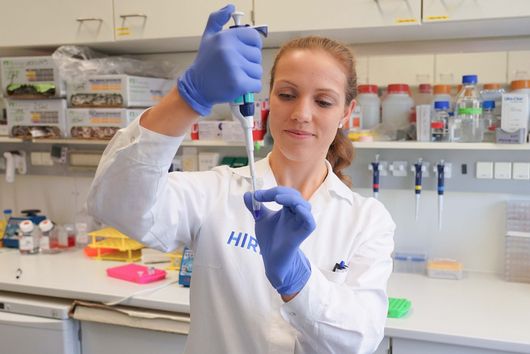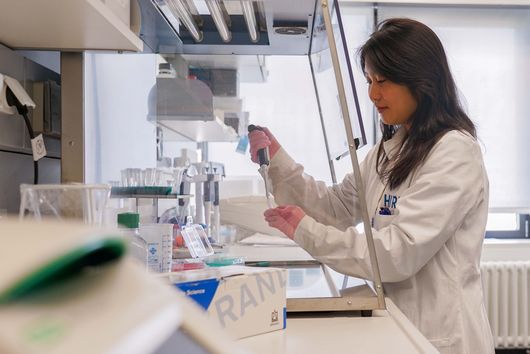
All things CRISPR
Adini Arifah has been a PhD student in HIRI’s graduate program “RNA & Infection” since 2021. In her research, the Indonesian-born scientist has devoted herself to the CRISPR-Cas gene scissors.
“It's just fascinating how CRISPR is revolutionizing genome editing, the targeted alteration of genes. Prior to CRISPR-Cas, there were already tools to edit genomes, but CRISPR-Cas provides a quicker, cheaper, and simpler way to edit genetic information,” HIRI doctoral student Adini Arifah says enthusiastically about the gene scissors, which have significantly boosted the speed of research in biology. The young scientist is particularly taken with its history and development: “It all started with the discovery of mere repeats in the genome of bacteria, of which the function was completely unknown. Now, these very repeats are part of a useful toolbox—not only for genome editing but also for other approaches in gene therapy or for diagnostics.”
Cutting-edge research
Today, Adini is researching this genetic tool in the lab of HIRI department head Chase Beisel: “We are just beginning to understand CRISPR—not merely in terms of its potential but as well in terms of its limitations. The fact that there are weaknesses does not automatically make CRISPR bad. It's our job as scientists to explore and understand those limitations to improve the technology.” In her research project, Adini is focusing on one weakness in particular: cytotoxicity. When CRISPR technologies are used, they run the risk of targeting and damaging healthy cells as well. Adini wants to understand why this happens and how to specifically direct CRISPR. She aims to use her findings to improve CRISPR technologies and transfer these to new applications.
Adini's interest in science and research has always been strong: “I didn't know from the beginning that I would go into research, but I always knew that I loved science and especially biology.” She eventually got the chance to study biotechnology in Malaysia on a scholarship. During this time, she got to know and love molecular biology and genetic engineering: “I was fascinated by the molecular basis of living organisms. However, after I got my bachelor's degree, there were still so many things I didn't know or understand. That was my motivation to do my master's degree in the Netherlands.” And because her thirst for knowledge was still not quenched, Adini went on to pursue a PhD.
A colleague brought her attention to the HIRI graduate program—which was perfect for Adini. “Towards the end of my master's degree, I became more and more interested in RNA. I wanted to explore and develop RNA-based therapeutics, but I lacked experience. I had worked with CRISPR before—RNA is one of the main components of CRISPR-Cas systems—but not directly with RNA,” she says. Therefore, HIRI’s rotation system was a good way to be introduced to RNA-related research and its methods. Prospective students do not apply for a specific lab and a predetermined topic, as is the case with other programs. Instead, successful applicants are first exposed to three different laboratories at HIRI. “I have learned about RNA-seq, human cell transfection, viral production, and microscopy during my rotations. This experience turned out to be useful for the project I am currently working on.”
Würzburg—not too big, not too small
Adini eventually moved to Würzburg to take on her graduate studies, which she considers a great decision. “I like that Würzburg is not too busy as a city but also busy enough for me to always have options for activities to do on the weekend. There are many concerts and festivals, restaurants, and places to do sports and fun activities. I am from busy Jakarta and did my other degrees in small towns. Würzburg is in-between—and that's what I like about the city,” says Adini, who enjoys baking, taking care of her plants, or making digital illustrations in her spare time. Another advantage of the Lower Franconian university town is its connection to the high-speed rail network and its proximity to Frankfurt Airport. “This is important for someone coming from far away. It also allows me to conveniently visit my friends in the Netherlands and other German cities.”









